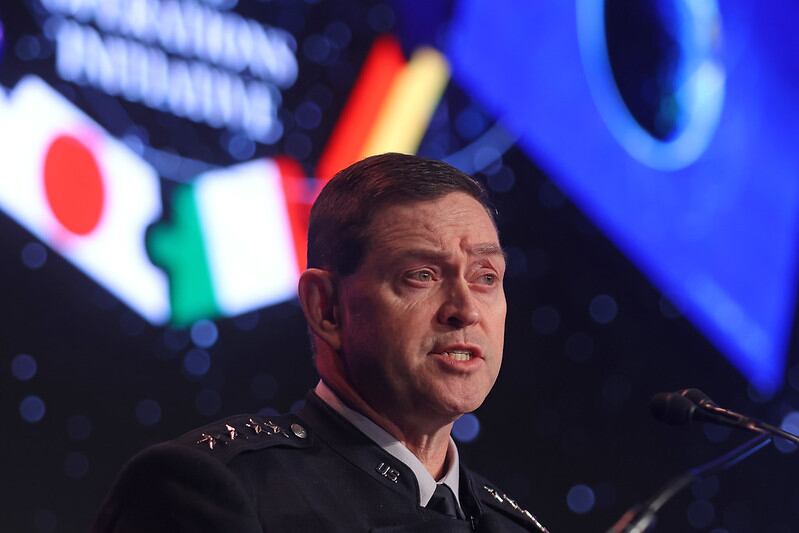As the Army begins to retool its tactical network, it wants input from the so-called cyber SWAT teams resident with Army Cyber Command.
After the Army made the decision to halt major portions of its tactical network, the service began looking at how to build a next-generation tactical network that can survive against a peer adversary.
This is a dauting task.
“We’re looking to get a dedicated liaison from Army Cyber [Command] just because we want … to make sure [cyber resiliency is] baked in on the front end of everything we’re doing,” Maj. Gen. Peter Gallagher, the network cross functional team lead told C4ISRNET at the AUSA Global Force Symposium in Huntsville, Alabama March 26. “I need a red team helping us as we go through this experimentation and demonstration as part of our assessment team.”
Additionally, Gallagher said the Army needs input from Army Cyber’s defensive teams, called cyber protection teams. While part of the cyber mission force that feeds up to U.S. Cyber Command, each service cyber component retains a small number of the overall cyber protection teams they’re responsible to provide. These teams act as SWAT teams or quick reaction forces against breaches and cyber incidents.
Army Cyber Command has decided to stand up its own dedicated cyber protection brigade to conduct defensive cyberspace operations on Army systems.
The key to having Army Cyber’s input is that it will allow cyber defenders to better understand and map the network if and when they need to conduct defensive operations remotely.
“They’re trying to figure out where to put the sensors and how to help us … remotely,” Gallagher said. “We’re looking at changing the security boundaries inside the network. We want to make sure we assess the risk … and do everything we can to put sensors on there and make sure that we protect the network.”
Gallagher said he’s been in contact with the leadership at Army Cyber and the cyber protection brigade for assistance. He added that they’ve gone forward with a tasking order from the Department of the Army “because we absolutely need it.”
Mark Pomerleau is a reporter for C4ISRNET, covering information warfare and cyberspace.
More In







